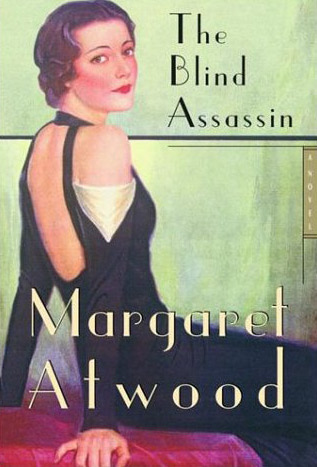So, true confessions: I didn’t finish this book. In fact, I didn’t get halfway through it. I understand that this both makes me a bad person, as well as makes me an inadequate reviewer for the book. To be honest, you should probably stop reading this right now…
Still with me? Alright then, I will continue on.
Since I only read about 1/4 of the book, this review will not be particularly lengthy. But I did want to take the time to explain why I did not finish the book, as well as why I would still recommend it to the avid readers of the world. This may seem to be a contrary point of view (it is), but there is a reason why I cling to it. I have complete respect for the true brilliance that this novel exhibits. Margaret Atwood, the crown treasure of Canadian authors, is a masterful wordsmith who is able to string together words on a page in the same way a designer strings jewels. Each sentence is a delight to read, with poetic metaphorical language finding itself existing beside abruptly crude tangents that shock and awe the reader.
still recommend it to the avid readers of the world. This may seem to be a contrary point of view (it is), but there is a reason why I cling to it. I have complete respect for the true brilliance that this novel exhibits. Margaret Atwood, the crown treasure of Canadian authors, is a masterful wordsmith who is able to string together words on a page in the same way a designer strings jewels. Each sentence is a delight to read, with poetic metaphorical language finding itself existing beside abruptly crude tangents that shock and awe the reader.
My issue is not with the book at all, it is an issue with myself; I found the book was simply not suitable to my tastes when it came to the story being presented. Atwood delivers a narrative of an elderly woman who is sorting through her own history and exploring meaning and existence itself. Secrets exist within her family, as do hidden truths from the past. This ordinarily would grab a reader by the lapels and pull them along through the pages. For some reason that I cannot fully put my finger on, I found the book missed my lapels and instead ended up getting a fist full of hair. I read as far as I did out of appreciation for the beauty of the writing, but I found myself completely bored by the narrative.
This, I think, brings up an interesting question about so-called great literature and what it means to appreciate artistry. I suspect the question is probably connected to the debate between artists asserting art’s purpose as being for the artist or the recipient of the art. I don’t know a great deal about that however, so I’m going to skip it! What I do think is worth questioning is the very notion of great literature itself. I do not feel that we should, as a society, compel appreciation of certain types of art and literature. After all, life is simply too short to waste on books that aren’t compelling. This, compiled with the fact that there is an infinite diversity of people in this world, means that nothing can be labeled as universally great (I know that Plato would be horrified at these words, but I doubt he has time to haunt me about them). Perhaps great literature could be equated to being loved by the most amount of people, but critics often condemn the taste of the “masses” throughout history.
I’m not really sure where to go from here, other than to say: read what brings you pleasure; if something is boring, time to grab another book and read on!